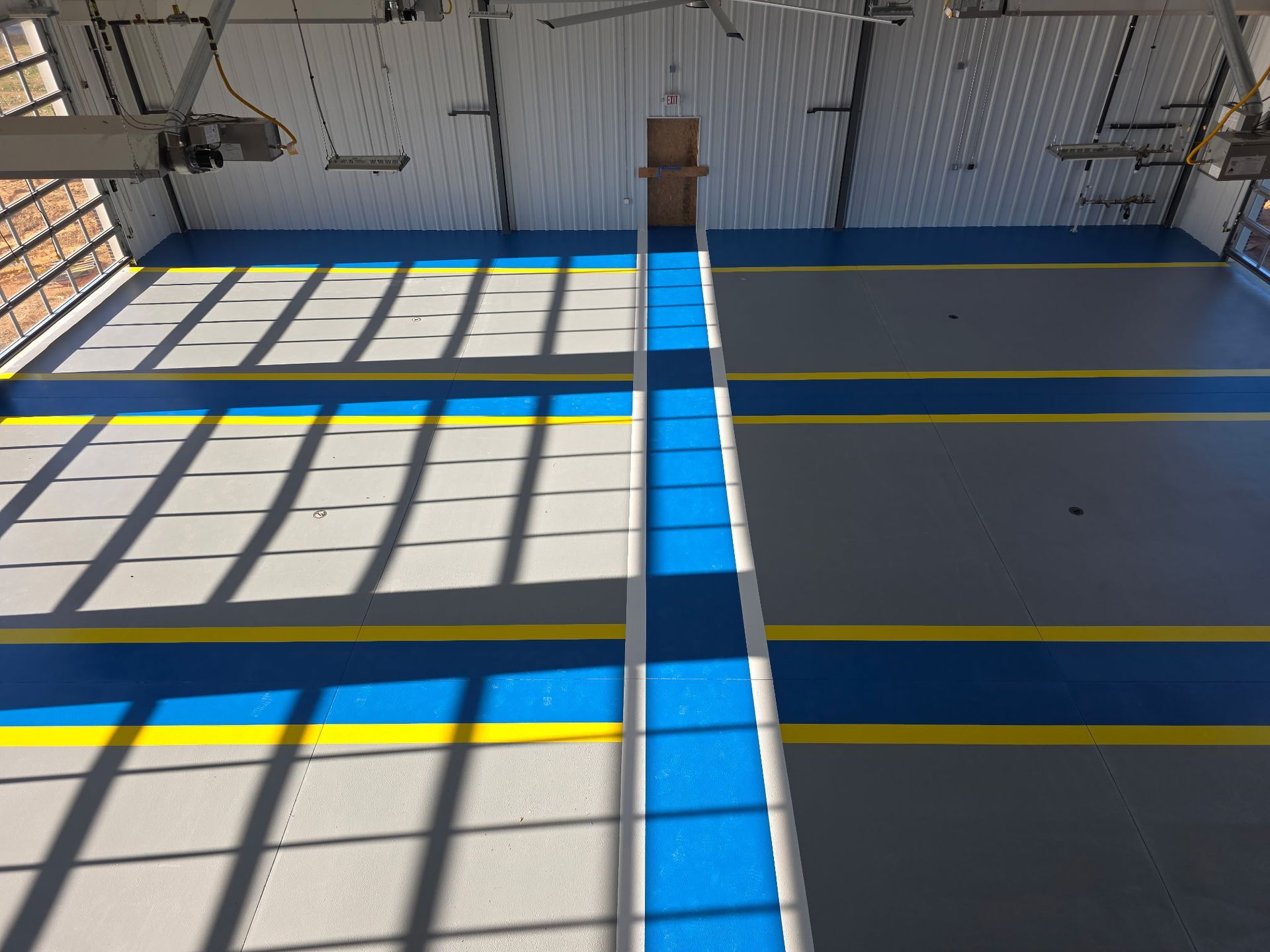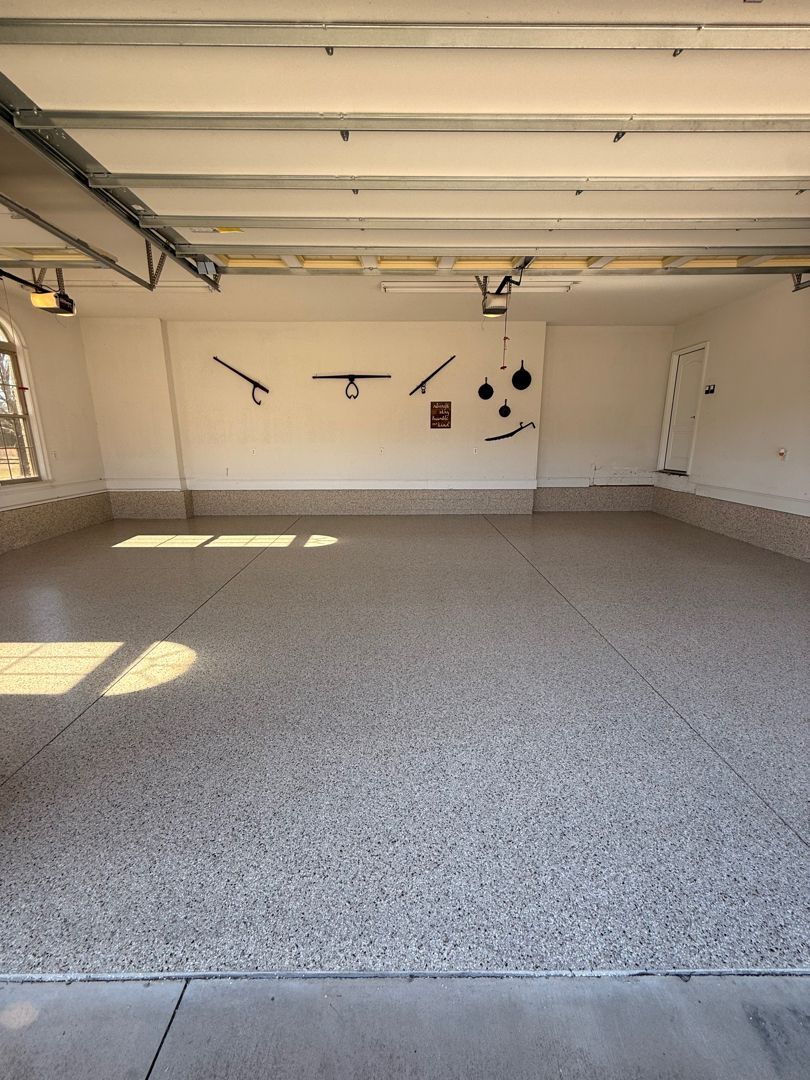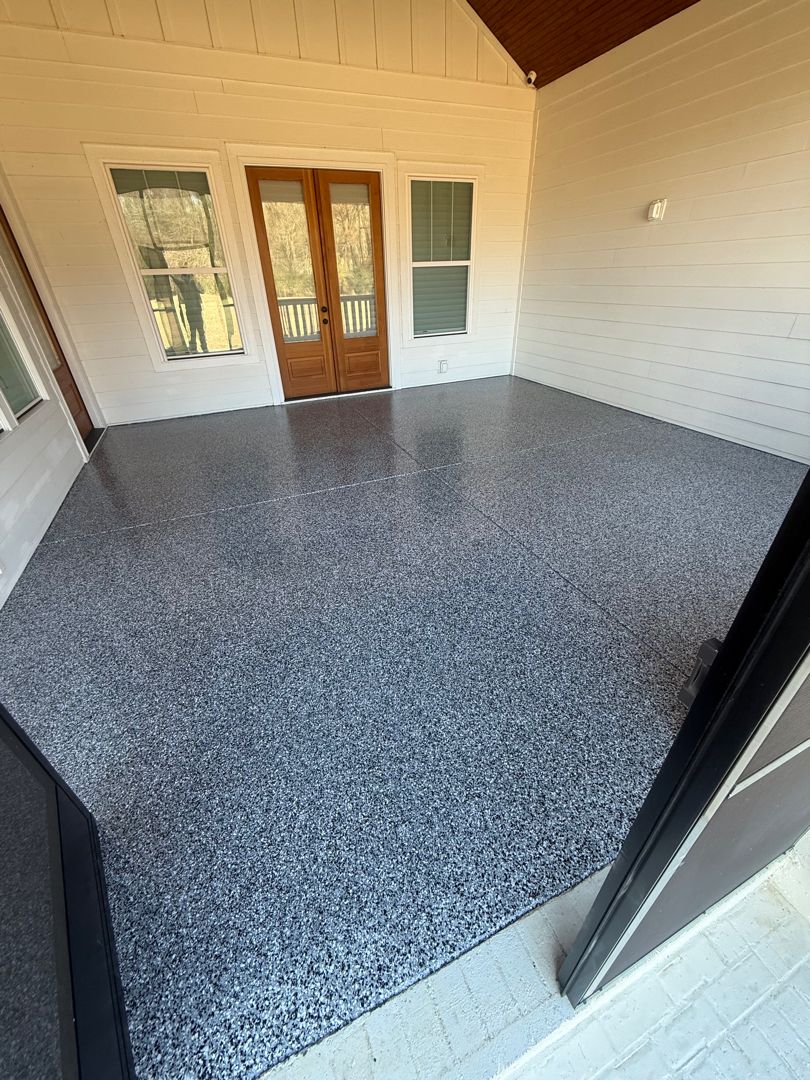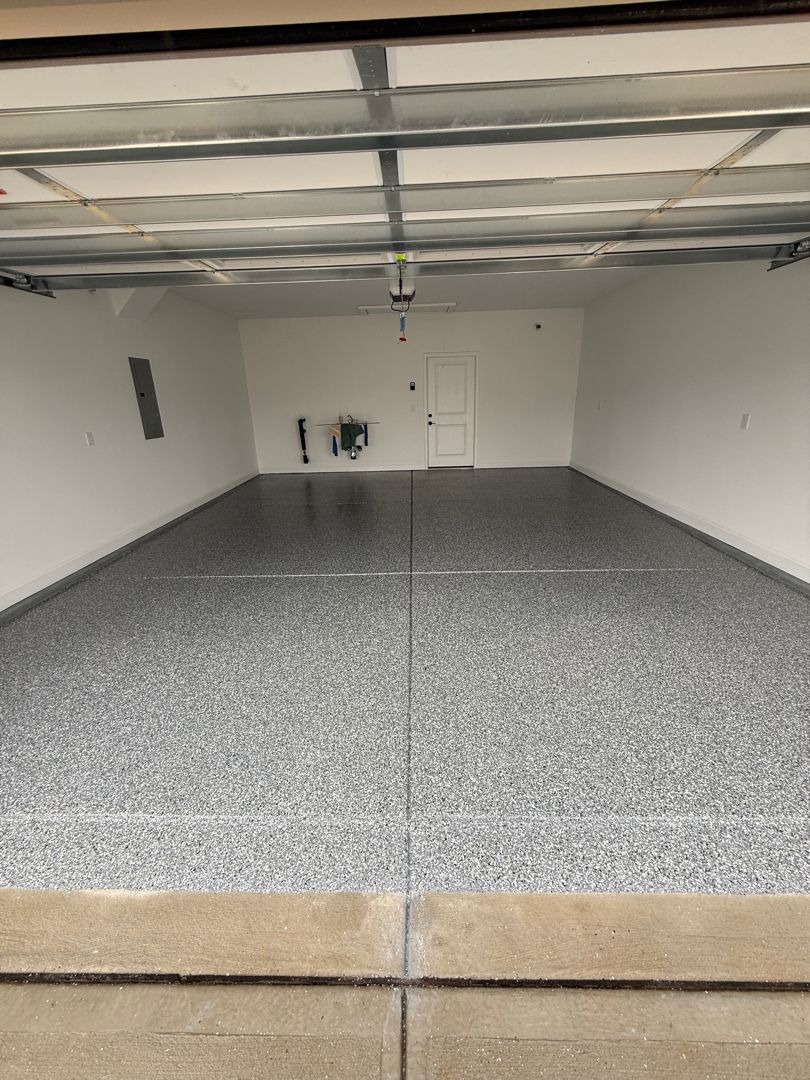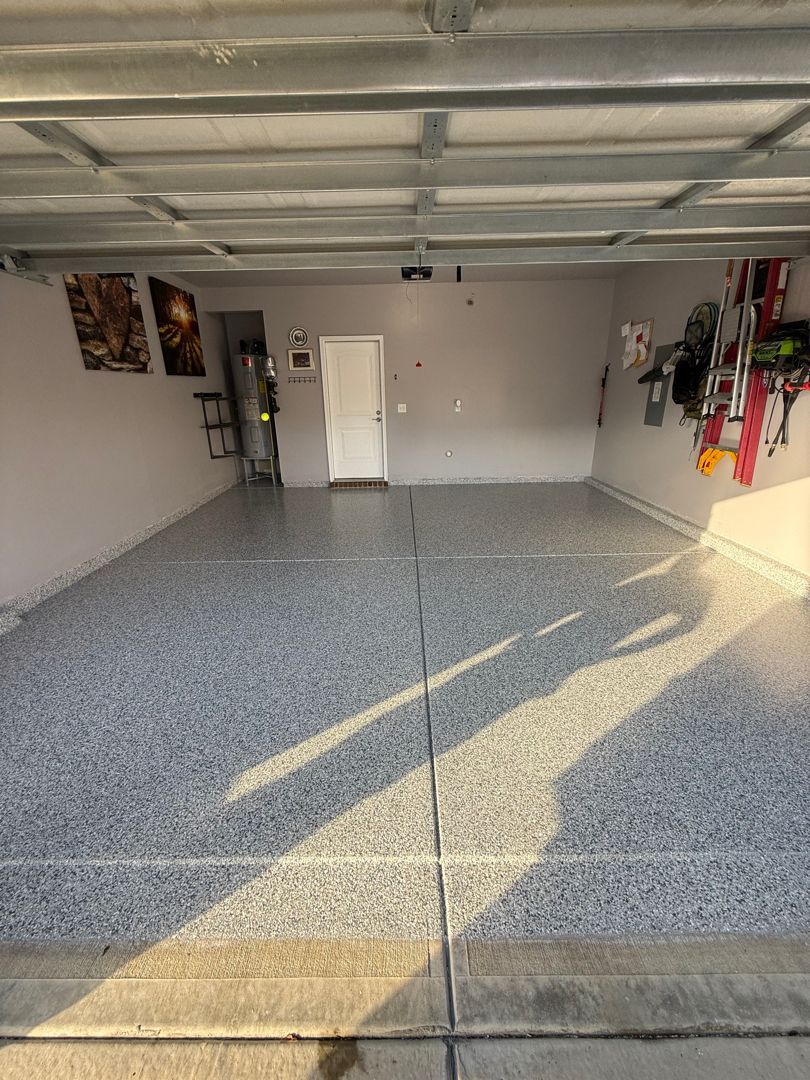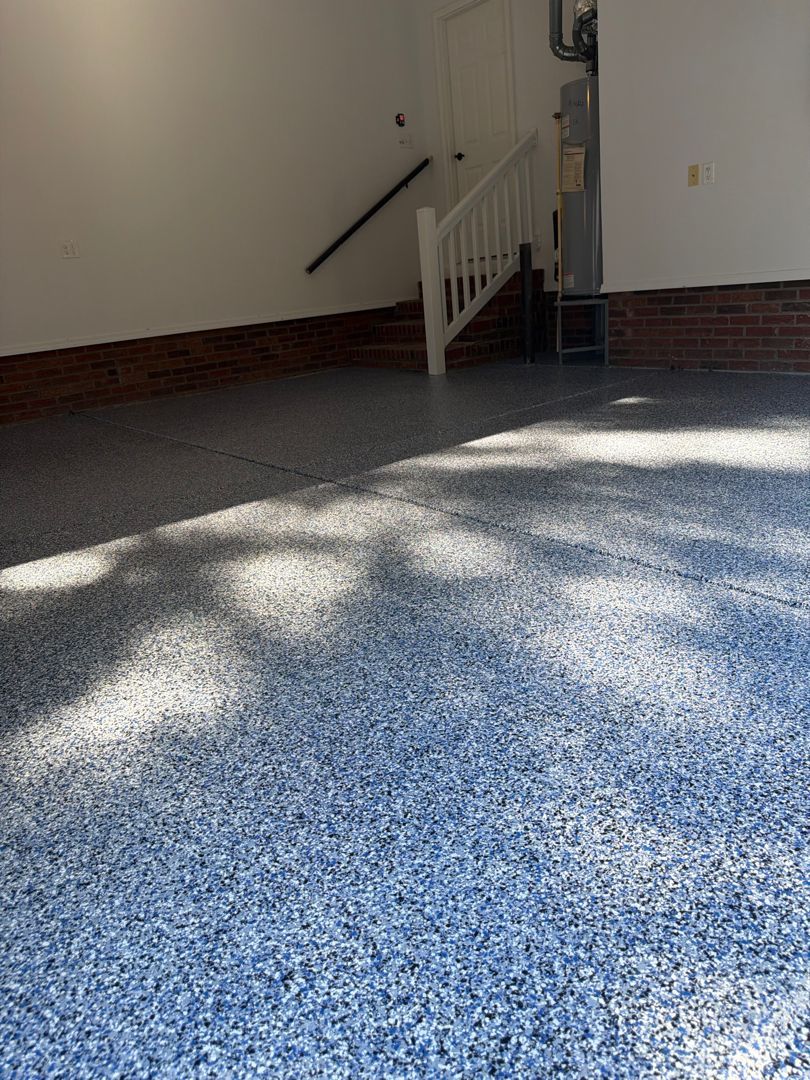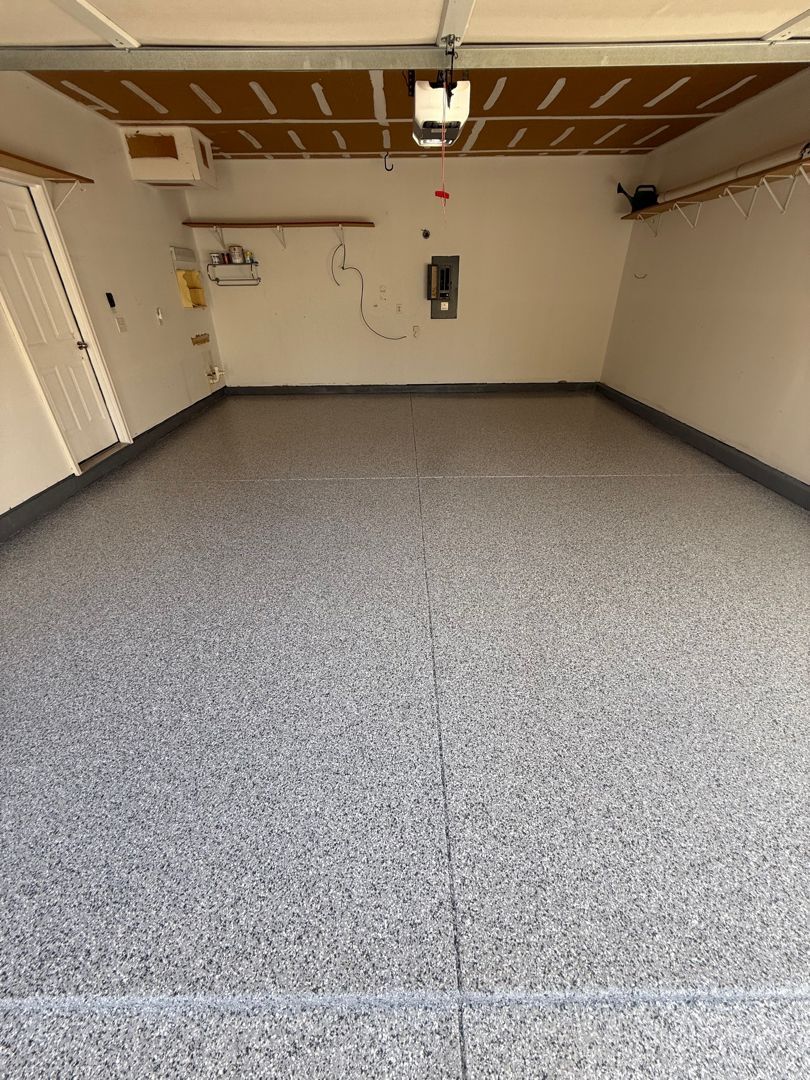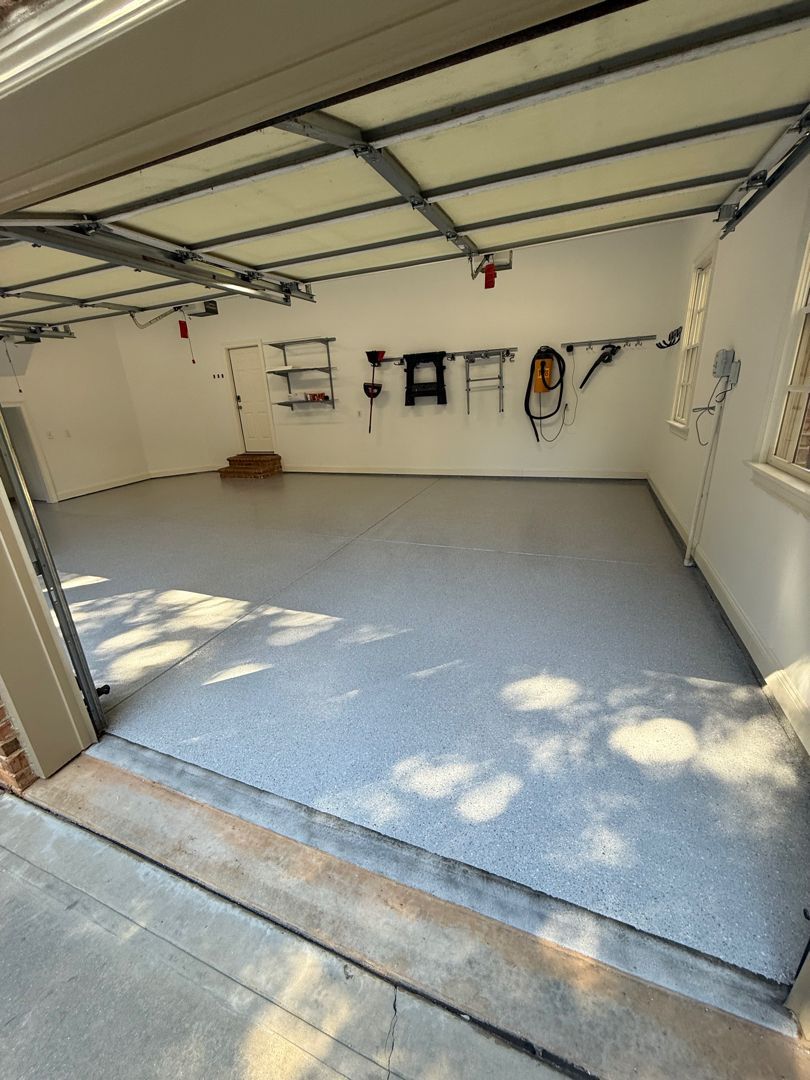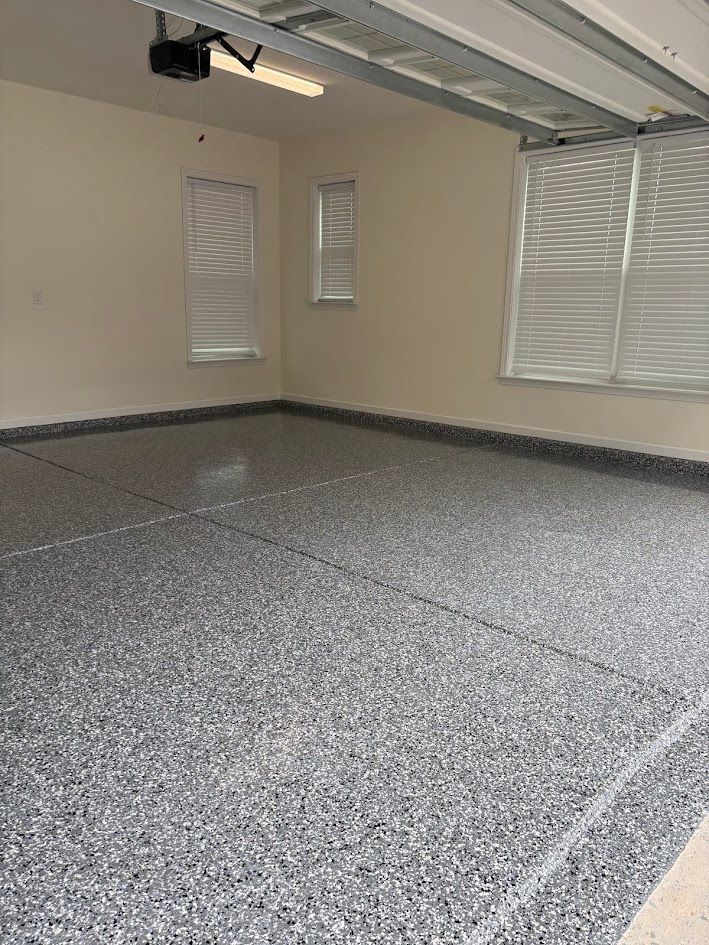Are epoxy floors slippery?
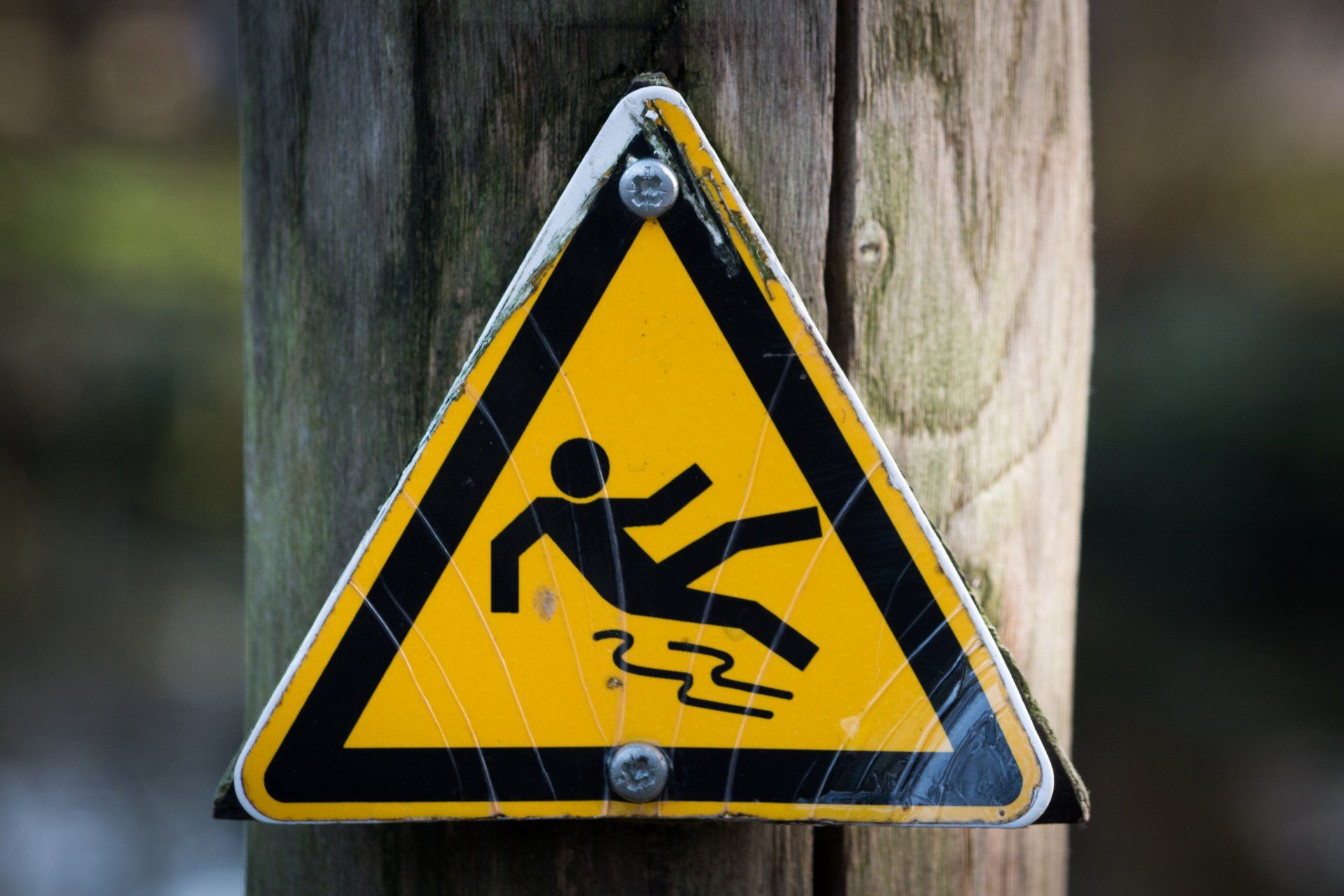
Are Epoxy Floors Slippery?
One of the most common questions we are asked by prospective customers is if epoxy floors are slippery, and the answer can range from no--to maybe. Like most things in life, there is no definitive answer to such a broad question because there are a lot of varieties of epoxy--and other floor coating products--on the market with varying degrees of slip resistance.
To answer the question broadly, correctly installed epoxy and polyaspartic floors should generally pass OSHA slip co-efficient requirements. The key is that the installer understands the environment the floor coating is installed in, and making appropriate recommendations to each customers needs.
Are garage floor coatings slippery?
For most companies, full broadcast flake systems are the most commonly installed type of epoxy garage floor. These systems are not only incredibly durable, but they provide a slight texture that significantly enhances their slip resistance. With texture, your foot or shoe has to conform around the high and low spots in the floor, which provides improved traction, even if the texture is very subtle. We shoot for a textured surface that is still smooth enough to be easily mopped and cleaned by the customer. Even in wet conditions, full broadcast flake systems are rarely slippery with appropriate footwear. We do caution customers that leather soled, however, can be slippery on epoxy floors, even in dry conditions.
For customers installing a floor coating in an area prone to moisture, such as a patio or front porch, we include an integrated non-skid additive for better traction. This adds additional texture, which can make it more difficult to mop, but it will remain easy to clean with a hose or scrub brush.
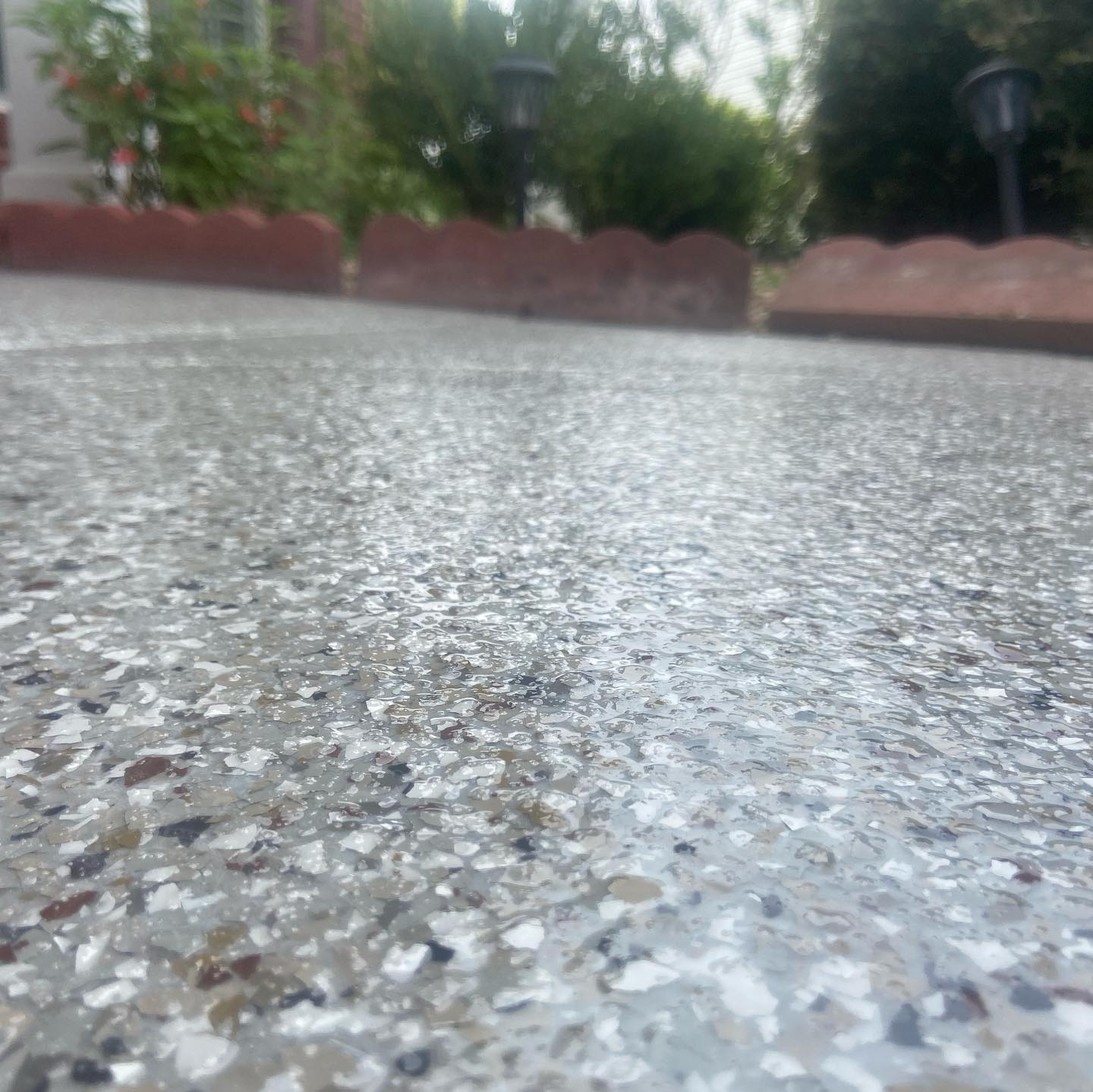
If you look carefully at the image above, you will see small, almost sand-like objects embedded in the coating. This is a product called aluminum oxide--a white powdery to sandlike material that turns clear when saturated with a clear topcoat. This aluminum oxide provides exceptional grip to the surface even in wet conditions without significantly changing the look of the surface.
What if I don't want a textured surface?
If you don't want a textured surface, the best floor coating products that provide a relatively non-slip surface are going to be a water based urethane, a rubberized epoxy, or a polyurethane elastomeric membrane.
- Water-based urethane - Water-based urethanes, have a subtle ripple texture, much like an orange peel, that produce a higher slip co-efficient than their solvent based counterparts. In fact, some water based urethanes actually see enhanced slip resistance when wet.
- Rubberized epoxy - Epoxies come in many forms, one of which is a rubberized epoxy with 100%-300% elongation. These products, often used on wood surfaces (though perfectly fine for concrete as well), will stretch and flex when stresses are applied. Although imperceptible to you, this slight flex provides a surface that subtly conforms to your shoe/foot and decreases a surfaces slip factor.
- Polyurethane elastomeric membrane - like the rubberized epoxy above, elastomeric membranes are designed to stretch and flex--up to 800% their original size without cracking.
Installing the right product for the right environment
A knowledgeable installer will help determine the best product for your specific situation. You want to avoid installing a solid surface in areas where moisture or chemicals will be present. Common areas include:
- Commercial kitchen
- Automotive shops
- Manufacturing facilities where chemicals are often on the floor
- Pool decks
- Sidewalks
- Porches
- Patios
Have questions about your project?
If you have an upcoming project that you'd like to learn more about, contact United Floor Coatings today. Our experts have installed millions of square foot of epoxy, urethane, polyaspartic, and more. Our expertise can help you pick a flooring solution that is not only durable, but safe and effective for your space's needs.
